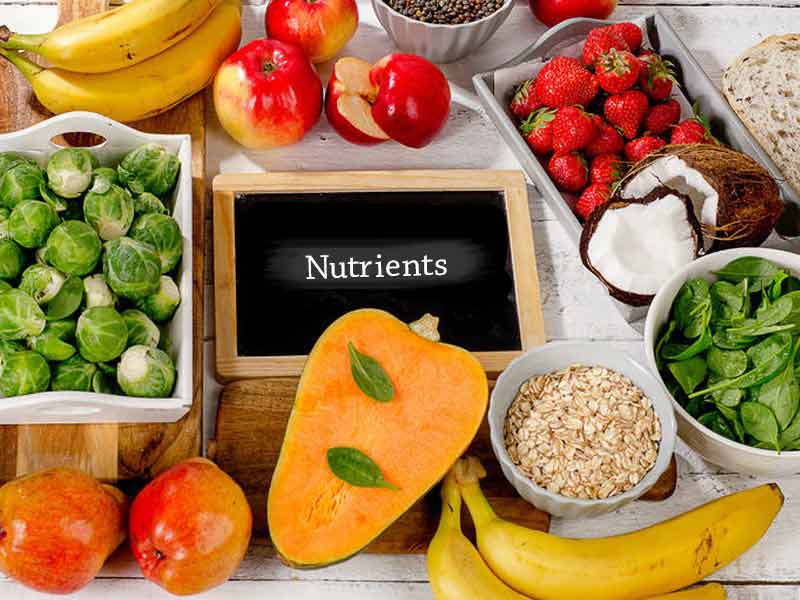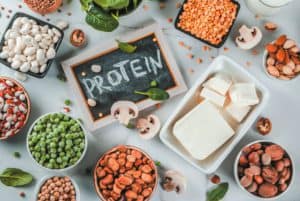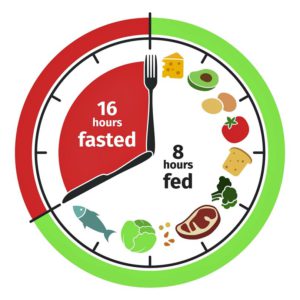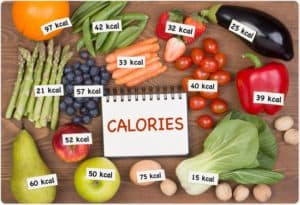What are Nutrients?
Nutrients are compounds that the body needs for growth, survival, and good health. Our body cannot make these nutrients on its own in sufficient quantity so we need to get these nutrients from outside sources such as food and dietary supplements.
Nutrients are the building blocks for restoration and growth and substances necessary to regulate chemical processes for the proper functioning of the body.
While there are a ton of essential nutrients that are required for the proper growth and functioning of the body but on a larger scale, we can divide these essential nutrients into two categories as Macronutrients and Micronutrients.
What Are Macronutrients?
Macronutrients are the nutrients that are required in large amounts by our bodies. They are the building blocks of our diet and contain nutrients like carbohydrates, protein, and fats which are necessary for the growth and proper functioning of the human body.
They consist of a significant chunk of our diet and they are the one who provides us constant energy to do our daily activities. The power from macronutrients comes from their chemical bonds and then that energy is converted to cellular energy which is utilized by our body to perform work.
-
PROTEINS
Protein is a macronutrient that is comprised of chains of subunits called amino acids which are called the building blocks of protein. Amino acids are only subunits composed of oxygen, carbon, hydrogen, and nitrogen.
Proteins secure the growth and development of muscle, skin, bones, and hair and the repair of tissues. They help you fight infection by creating antibodies and other essential substances.
Your body uses additional protein for energy as they serve as a fuel source for cells and tissues when required. Protein provides 4 calories per gram.
Healthy Sources Of Protein
These are some of the healthy sources of protein that you can incorporate into your diet for the proper functioning of your body:
- Chicken Breast
- Egg whites
- Whey Protein
- Beans and Lentils
- Lean steak
- Salmon
- Pork
- Turkey
-
FATS
Fats are heightened in calories and provide energy to our body to perform various important functions such as absorption of vitamins and minerals, building cells, and improving brain and heart function.
There is a misunderstanding among people that fats are not good as they are calorie-dense but the thing is that including healthy fats in our diet can be beneficial for us in so many terms as they help in balance the blood sugar level, and decrease the risk of heart disease and diabetes.
They’re also assertive anti-inflammatories, and they may lower your risk of arthritis, cancer, and Alzheimer’s disease.
Research also has shown that 20 to 40 percent of our everyday calories come from fat but on the safer side, 30 percent of calories would be enough for the proper functioning of the body.
Fats are further divided into two major categories:
Saturated fats
Saturated fats are solid at room temperature and are occasionally called solid fats. Increased intake of saturated fat may eventually raise levels of low-density lipoprotein (LDL) cholesterol in the body, which increases the risk of cardiovascular disease and stroke.
Unsaturated fats
Unsaturated fats are fluid at room temperature, and they are mostly acquired from plant oils. Sources of unsaturated fats contain olives, nuts, and avocados.
Healthy Sources Of Fats
- Nuts
- Olive Oil
- Eggs
- Peanut butter
- Cheese
- Avocados
-
CARBOHYDRATES
Carbohydrates are the sugars that supply energy for all the cells and tissues in the body. They are the main source of energy and support in providing fuel to the body to carry out daily activities.
Carbohydrates fuel our brain and nervous system and defend against disease and should make up 45 to 65 percent of your total daily calories, according to the Dietary Guidelines.
The fruit, vegetables, dairy, and grain food groups all include carbohydrates. Numerous foods with carbohydrates also supply fiber. Fiber is a sort of carbohydrate that your body cannot digest.
It is grounded in numerous foods that come from plants, including vegetables, fruits, nuts, seeds, beans, and whole grains. There are two distinct types of carbohydrates:
Simple Carbohydrates
Simple carbs are sugars as they easily break down and transform into glucose which our body uses for quick energy.
They are not suitable for your body as they spike up your insulin which can be associated with a lot of diseases like diabetes and high blood pressure. So it is advisable to ingest them in a limited amounts.
Complex Carbohydrates
Complex Carbohydrates are more beneficial than simple carbohydrates as they are high in fiber and digest slowly so our body can use them for a longer time. Due to fiber, they are perfect for people with type 2 diabetes as they help in managing blood sugar levels.
Healthy Sources of Carbohydrates
- Oats
- Whole grain bread
- Sweet potato
- Brown Rice
- Whole Grain Pasta
-
WATER
Water is described as an essential nutrient because it is required in larger amounts to ensure the proper functioning of the body. It is also needed for digestion, absorption, transportation, dissolving nutrients, elimination of waste products, and thermoregulation.
Water is responsible for 50-80% of body weight, depending on lean body mass. It is crucial for every part of your body as it improves your brain function and mood and acts as a shock absorber and a lubricant in the body.
Healthy Sources Of Water
You don’t have to sip lots of water to stay hydrated. Fruits and vegetables can also be a great source. Munch on some spinach or watermelon to remain hydrated.
The most reasonable way to know if you’re properly hydrated is the volume and color of your urine. If your urine isn’t regular and pale yellow or nearly clear, you need more water in your diet.
So It’s significant to have water in your diet in adequate amounts to avoid dehydration as even mild dehydration can make you feel tired and impair your concentration and physical performance.
What Are Micronutrients?
Micronutrients are nutrients that are required by the body in small amounts as they indirectly support in carrying out essential functions of the body.
They don’t deliver energy to the body unlike the macronutrients but they assist in the process by being part of enzymes that catalyzes chemical reactions in the body from producing energy to digesting nutrients to building molecules.
Micronutrients are divided into two further categories:
-
Vitamins
Vitamins are the macronutrients that are required for the development and growth of the body. There are 13 vitamins your body requires that is Vitamin A, B vitamins, Vitamin C, Vitamin D, Vitamin E, and Vitamin K. Each vitamin has a specific job.
If you have decreased levels of certain vitamins, you may get health problems. Some vitamins may assist in preventing medical problems.
Vitamin A prevents night blindness. You can generally get all your vitamins from the foods you eat. Your body can also make vitamins D and K. Individuals who eat a vegetarian diet may need to take a vitamin B12 supplement.
Healthy Sources of Vitamins
1) Vitamin A – Carrot, Spinach, Beef liver, Black Eyed Peas
2) B Vitamins – Salmon, Eggs, Milk, Oyster
3) Vitamin C – Tomatoes, broccoli, Cauliflower, Oranges
4) Vitamin D – Fatty Cheese, Egg yolks, Beef Liver
5) Vitamin E – Vegetable oils, nuts, green leafy vegetables
6) Vitamin K – Kale, Pork Chops, Chicken
-
Minerals
Minerals are the micronutrients created by combining two elements that are required by the body to stay healthy. Our body uses minerals for many various sources, including keeping our bones, muscles, heart, and brain working properly.
Minerals are also important for producing enzymes and hormones. Most people get the number of minerals they need by consuming a wide variety of foods.
In a few cases, your doctor may suggest a mineral supplement. People who have specific health problems or take some medicines may need to get less of one of the minerals.
Healthy Source of Minerals
1) Sodium – Beans with salt, Shrimp, Cottage cheese
2) Zinc – Meat, Seeds, and Nuts
3) Magnesium- Green leafy vegetables, nuts, seafood
4) Potassium- Banana, Potato, Sweet Potato, Mushroom
5) Iron-Shellfish, Pumpkin Seeds, Quinoa
Here’s a 7-Day Meal Chart for you!
| Day/Slot | Breakfast | Lunch | Snack | Dinner |
| Monday | Paneer Bhurji + Veggies | Mix sprout dosa made in coconut oil | Lettuce Soup | Chicken Breast + Green Beans |
| Tuesday | Spinach Omelette | Chilli Paneer | Green tea + 5 almonds | Baked Eggs with Avocado |
| Wednesday | Almond pancakes + berries | Channa dal and spinach cakes + tamarind sauce | Chia pudding | Cabbage Stir Fry |
| Thursday | Poached Egg + Veggies | Butter Chicken + Veggies | Berry Smoothie | Baked Beans |
| Friday | Yogurt smoothie with almond and apple | Caesar Salad | Handful of Nuts | Salmon with Pesto sauce |
| Saturday | Butter Fried Paneer | Vegetable Kadhi | Protein Shake | Chickpea salad |
| Sunday | Lentil Pancakes | Grilled Chicken + Veggies | Roasted Channa Chaat | Greek Salad |
Takeaway
Eating a Balanced diet that includes fruits, veggies, and whole grains consisting of healthy proteins, carbs, and fats is the best way to get enough essential nutrients.
These nutrients are necessary for your overall body growth and the proper functioning of the body so it’s better to incorporate these nutrients into your diet to achieve maximum performance in your daily activities.
Get started with your Weight Loss Journey today and take a step towards a healthy lifestyle! Stay tuned for inspiring Weight Loss Journeys, and Delicious Recipes! Also, don’t forget to follow us on Instagram for the daily dose of Health, and Wellness content!

















